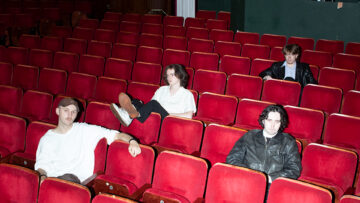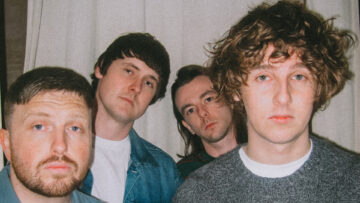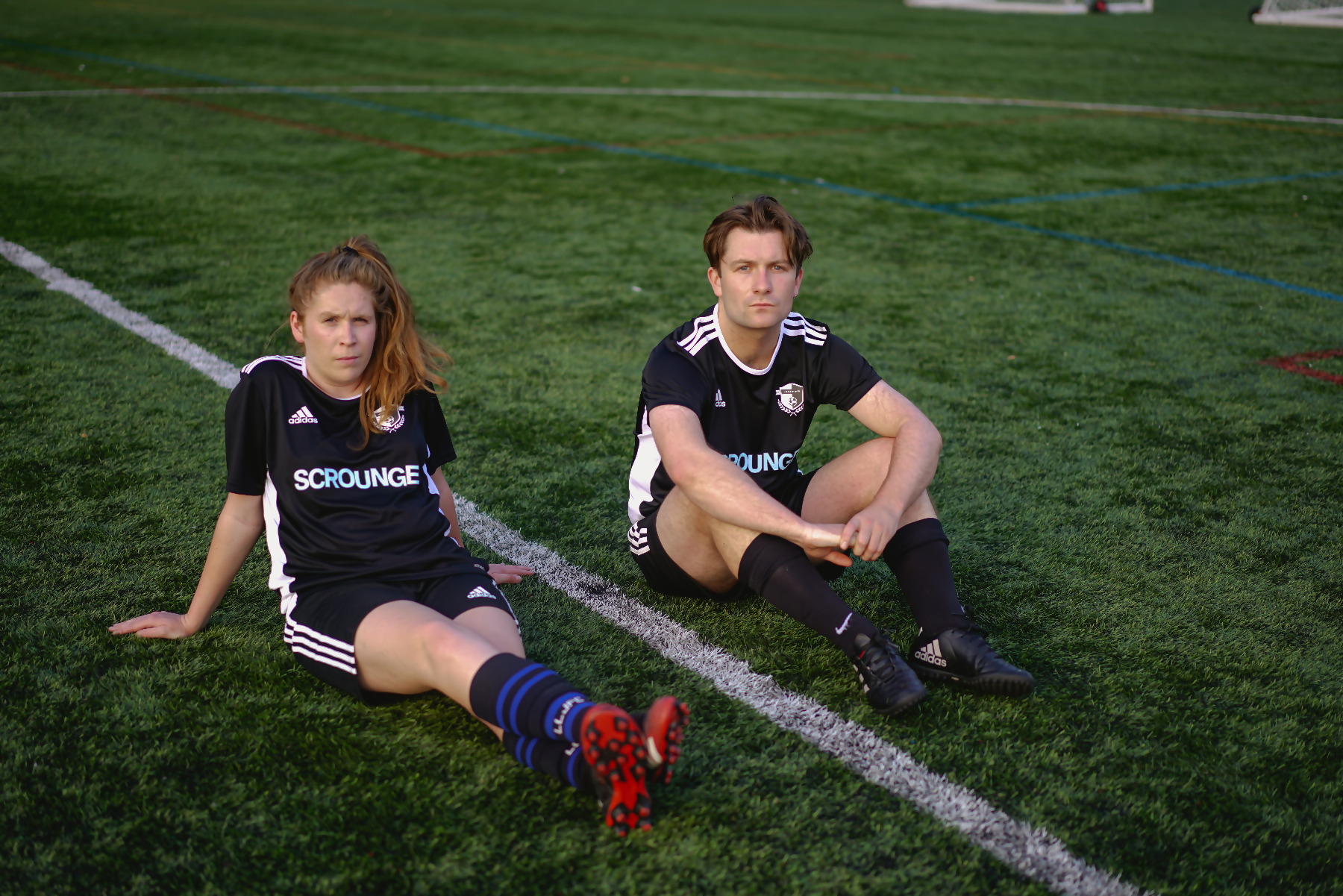
“I feel like to be in the music industry now, you have to be a bit self-sufficient,” says Lucy, half of Scrounge.
SCROUNGE, /skraʊndʒ/ v, 1. seek to obtain (something, typically food or money) at the expense or through the generosity of others or by stealth.
There is indeed a resourcefulness to this pair, but I wouldn’t call it scrounging, even if they have. It doesn’t come at the expense of others – the venues, fellow musicians and community of south London in which they live seem far more important to them than any of their own success – and one cursory listen to their music would reveal there isn’t a lot of stealth involved.
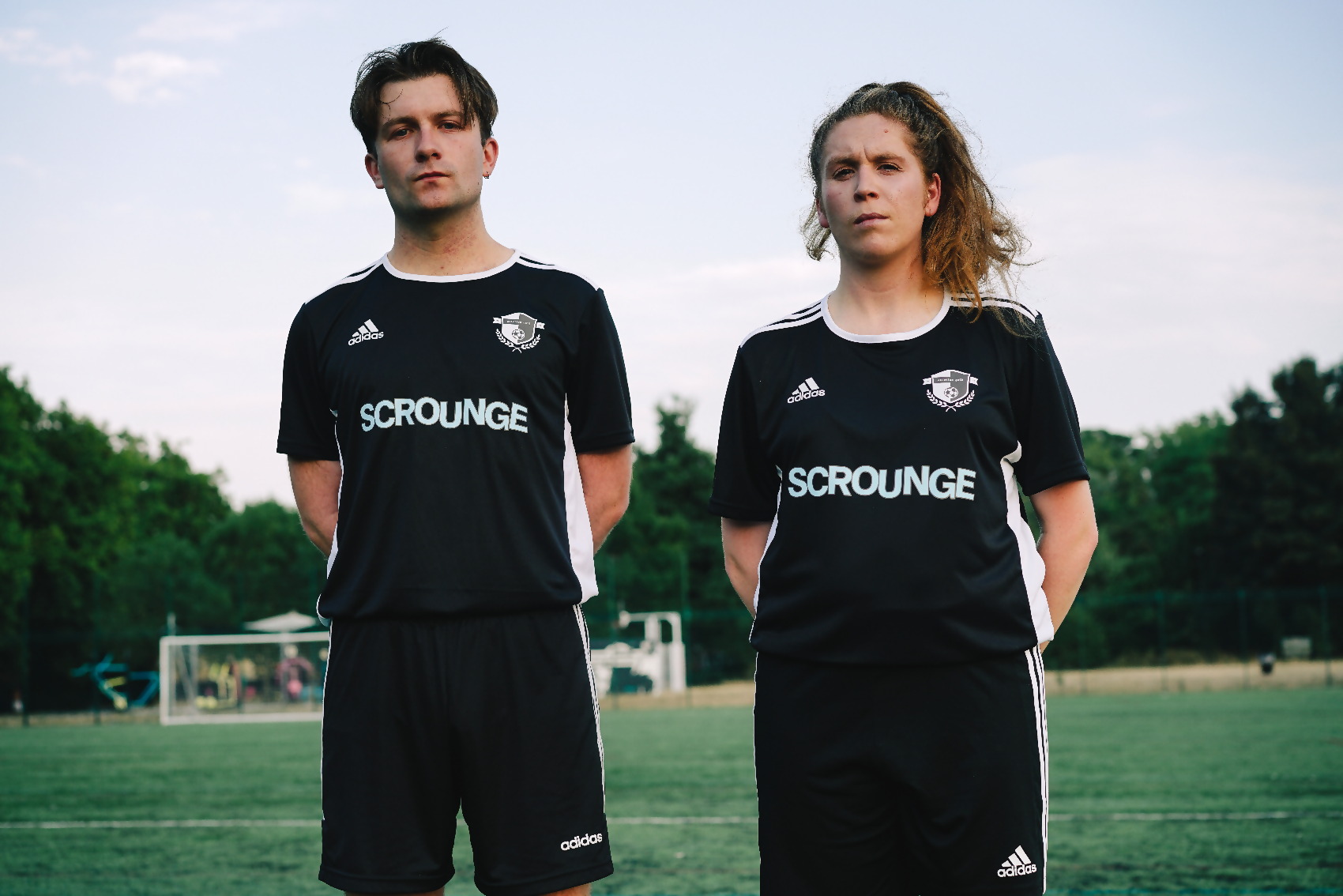
Photo: Joseph Elliott
Lucy is one half, Luke is the other. Lucy and Luke are good names for a duo. They became friends while studying at Goldsmiths, and soon after leaving, in around 2016, formed Scrounge.
A few weeks ago, I saw them play at The Ivy House in Nunhead. It’s London’s first co-operative pub, in 2012 becoming the capital’s first building to be listed as an ‘Asset of Community Value’, and a year later becoming a fully community owned public house. I didn’t know it at the time, but I reckon seeing Scrounge at The Ivy House was a near perfect introduction to the pair, and indeed something of an explanation as to what they hope to achieve with Scrounge.
The Ivy House is a small, charmingly untouched venue, the stage seemingly a relic from a different era. It’s the sort of half-theatre, half-town hall you fear only hosts children’s nativity plays in December and gathers dust for the other 11 months of the year, but, one of the many nice things about The Ivy House, is that it doesn’t. There’s a host of events held each week, set in this strange back room, memorabilia covering the walls.
As clearly as I can picture nativity plays, I can also picture town criers of years gone by coming here to deliver rallying calls. It turns out Scrounge on stage is something of a rallying call itself; Badoom, Badoom, Badoom goes their cry. It’s full throttle, a real pulse beats through the entirety of their set, and indeed their debut album, Sugar Daddy, which arrived last month. The eight-song project incorporates newer, post-Covid recordings, as well as tracks dating back to 2019.
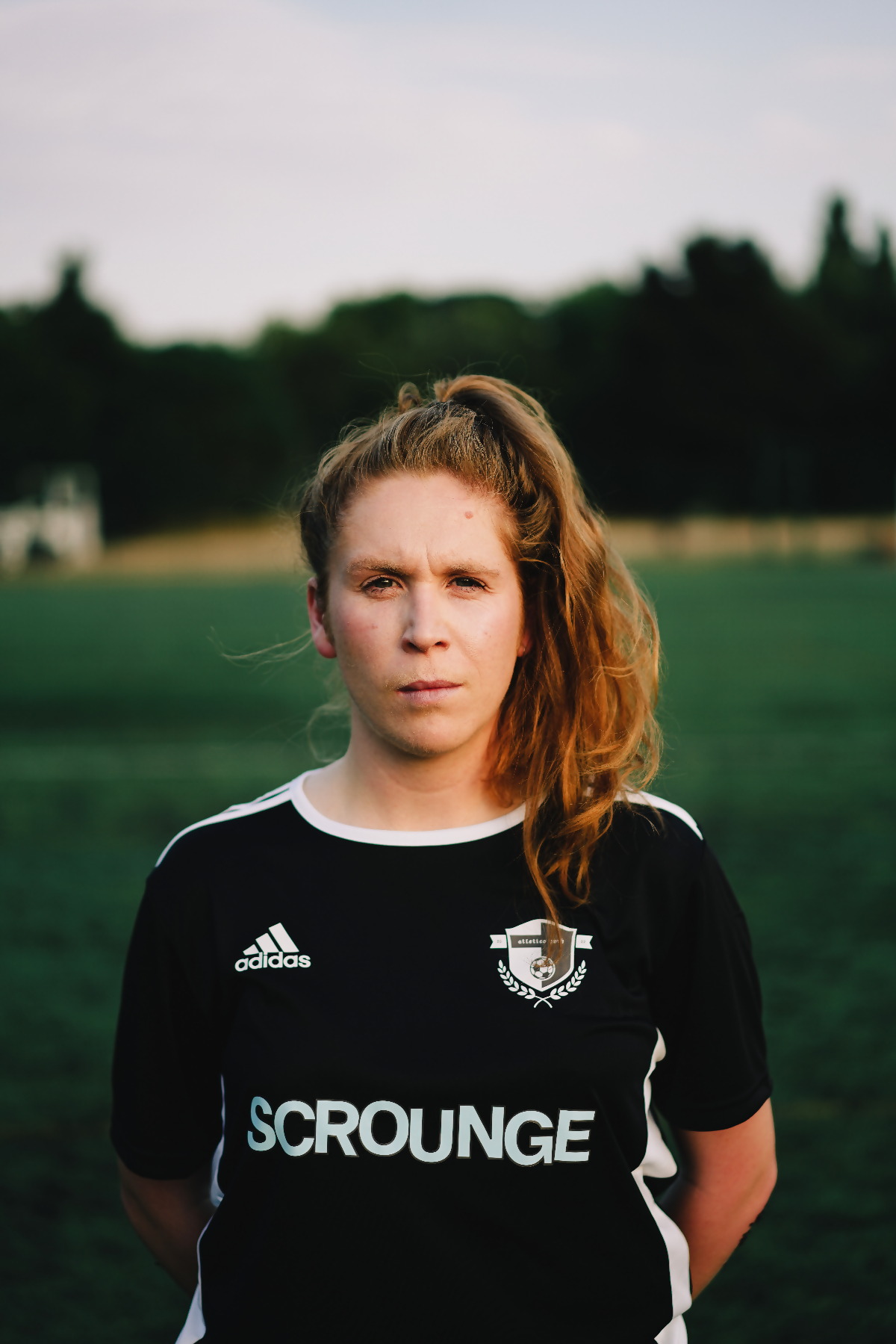
Lucy of Scrounge
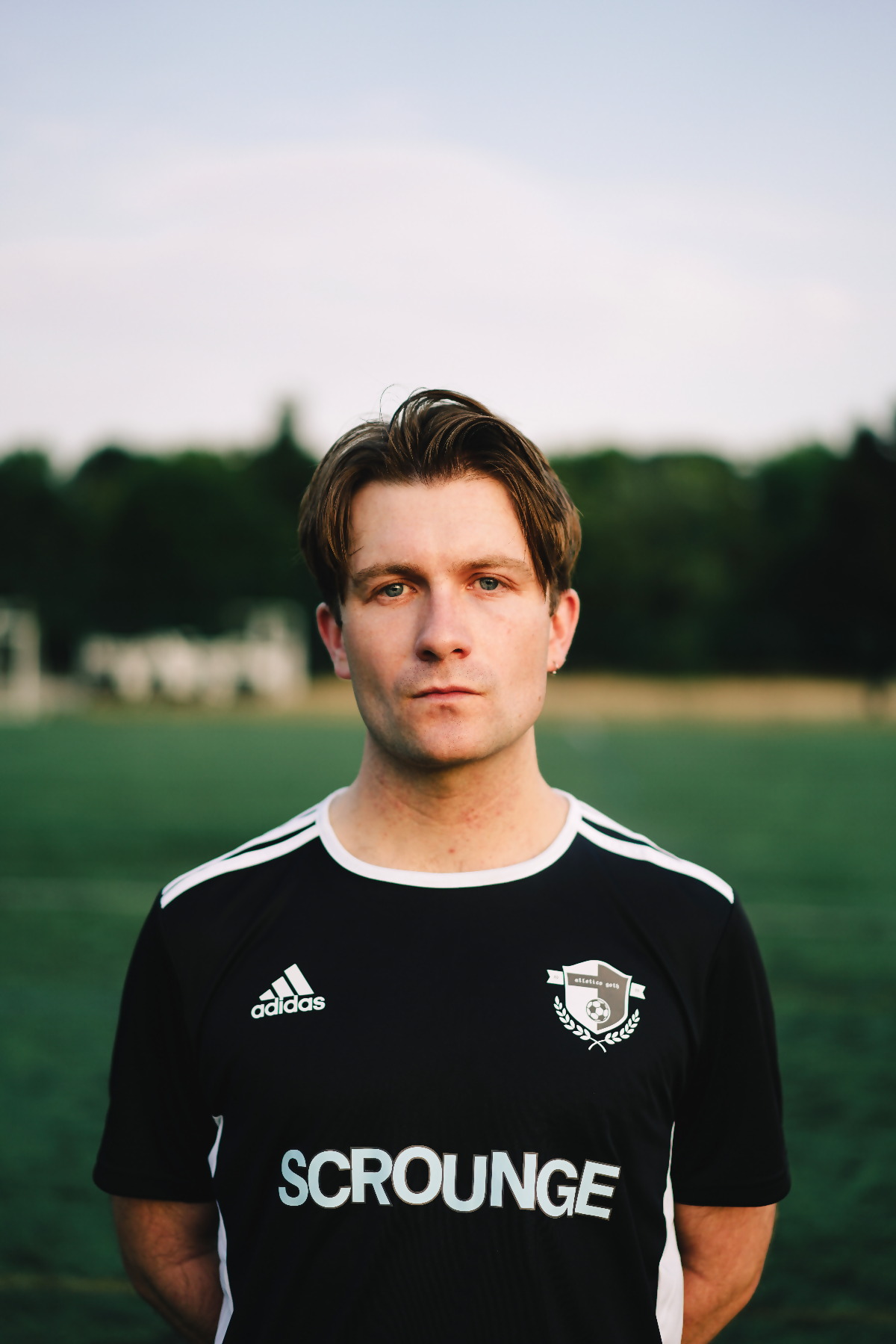
Luke of Scrounge
“We work so closely with the community that we live in and that we love, we always said the album was like a love letter to them,” they explain, ten or so days after their gig at The Ivy House. I’m meeting them for a beer, with Lucy coming from parent’s evening at the school where she teaches music, while Luke arrives after a day’s work at Loud and Quiet magazine.
Even if a love letter to their community, Sugar Daddy also seems a celebration of Scrounge’s resourcefulness to date. The album artwork shows them with a little benefactor customisation kit, its title a joke about finding, or in their case not, an illusive, bottomless-pocketed sugar daddy of their own.
“The album cover is orange because we wanted to pay homage to our old stuff, and our first first poster was orange. It was such a big thing. We plastered it all over South London. We had stickers everywhere, and people just came to us from that. It feels good to be able to try to empower [the fact] we did so much on our own, rather than having someone else do it.
“I don’t want to downplay anyone else’s role, though. We’re very lucky.” A friend called Amanda gets a particularly extended, heartfelt thank you; she created the Sugar Daddy artwork, among seemingly countless other bits and bobs for Scrounge.
“We were also really lucky in the fact that some of our mates were still at uni [when Scrounge started], and I think because we’d been to Goldsmith’s and really knew how to write and record stuff, people said: ‘Oh, you’ve got this new project, have a go at it.’ Immediately we got into the uni studios, had a go and put the [recordings] on the internet. Quite quickly, people were like, ‘Oh, come and do this gig.’”
And so it went on. The gigs kept coming, Scrounge expanding out of south London to have now played as far as Texas. The trip to Austin’s South by Southwest festival was made all the more challenging by not being able to transport their instruments with them, and then discovering rental prices were north of $1,000.
“We just had to buy the cheapest shit we could find,” says Luke.
“It was good though,” Lucy interjects.
“Yeah… it worked. Lucy had a child’s guitar and I had some drums where the symbols were basically made of tin foil – by the end they were egg-shaped.”
“The guitar was pretty good actually. It was just tiny but it played alright and we gave it to charity afterwards.” The pair then left Austin as a hurricane rolled in.
Stories like these emphasise just how important gigs are to Scrounge. For them, playing live – especially in their corner of South London – seems to be what it’s all about. “If we can champion the good stuff of South London, while hopefully seeing these different parts of the world, we’re only on to a winner,” says Lucy.
“I think we both feel,” adds Luke, “that we’re not interested in really being arena rock stars. But to be able to do this full time, while supporting the community around us, which has also supported us as well… I mean: that’s it.”
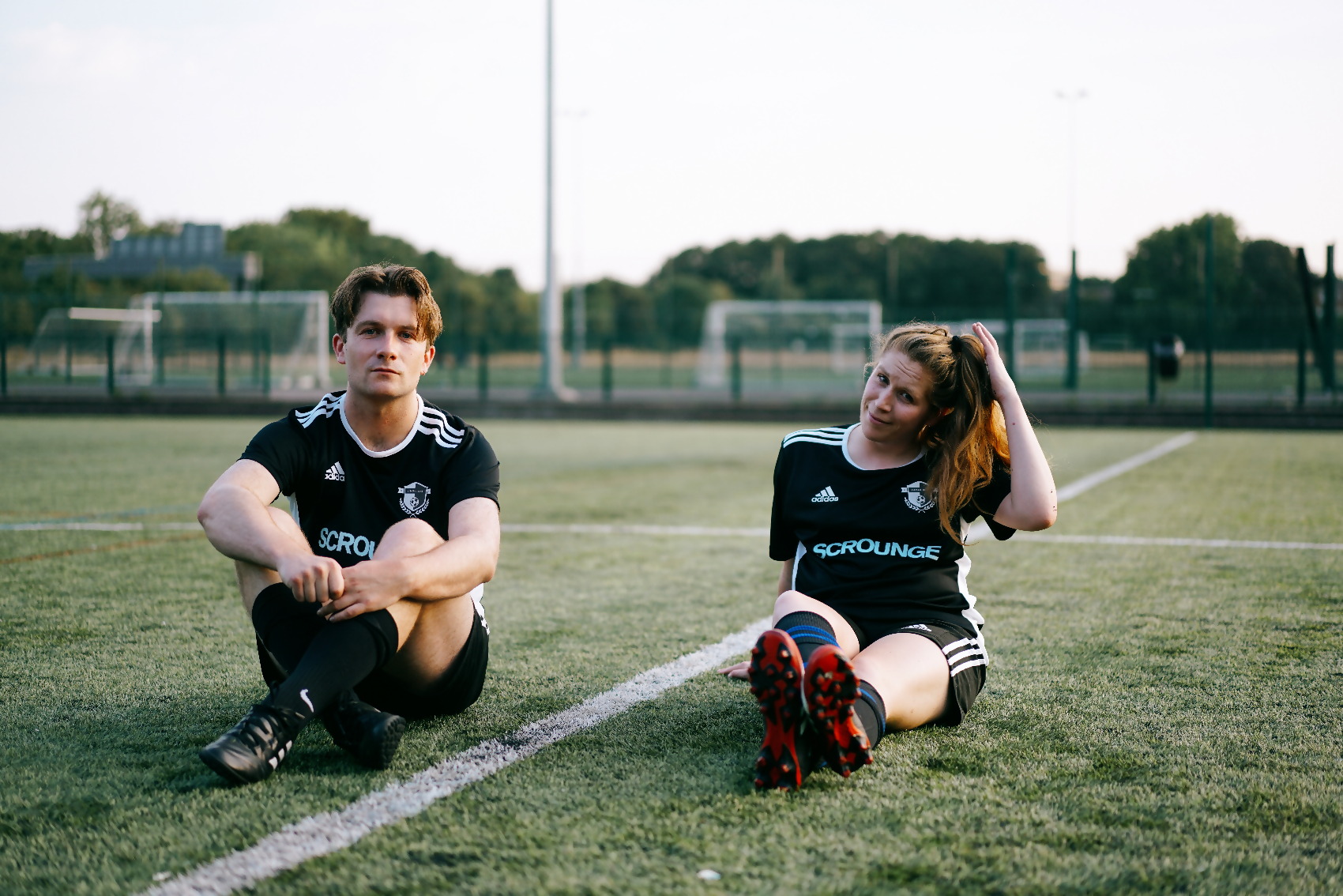
Photo: Joseph Elliott
The fondness for, and dependence on, gigging inevitably leads onto surely the most consequential event to have ever hit the live music industry.
“I think if you speak to any creative person,” begins Lucy, “they’ll say they’ve been done dirty by COVID. Anybody will tell you. And genuinely, at that time, everything was going flyingly for us, ‘Badoom’ was getting played regularly on the radio. But we had this gig at the Lexington, in Islington. I almost 100 per cent had COVID. Somebody helped me off stage, and I’m sweating bricks, and they were like: ‘God, you smell like Patrick Vieira.’ And that was February 2020. That’s when everything then cut off. We’d really been having such a great time. We’d been in Liverpool, and seen people singing our songs and that was mental…”
Scrounge are again swift to emphasise what they do have going for themselves: “But we’re really lucky now. There’s so much [to be said for] getting together and actually making something fucking work, rather than just waiting for it to come to you.”
It’s as if Scrounge’s fleeting moments of either self-pity or self-congratulation need to be balanced immediately, levelled out with a sufficient dose of gratitude, both for what they have and the people who help them. Whether or not this means they don’t give themselves sufficient credit, I don’t know, but it’s admirable.

